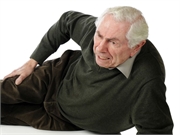
Can zinc help shorten a COVID-19 infection? Will vitamin C or other supplements prevent it? These claims and plenty more can be found on social media and internet sites, but be advised: There is no pill or treatment that can prevent or cure COVID right now. “We want to think that there is a quick… read on >





























